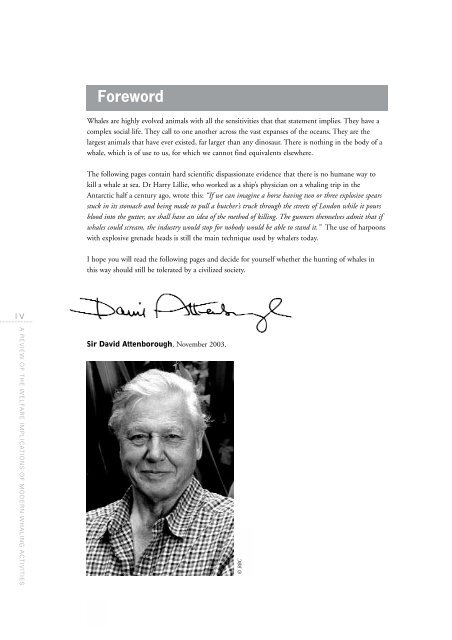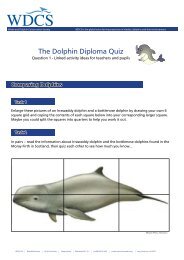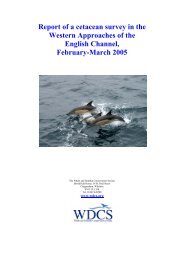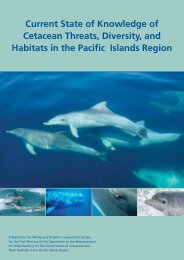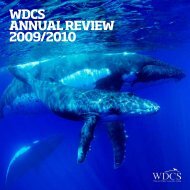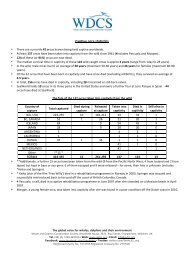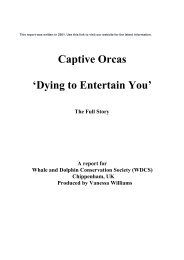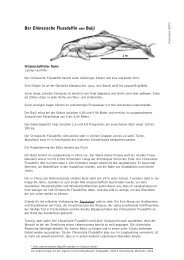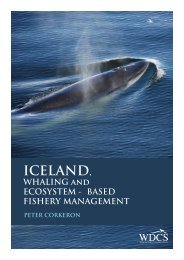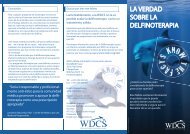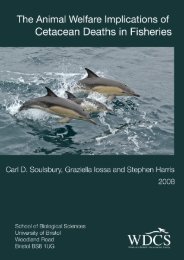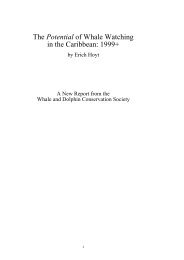TROUBLED WATERS - Whale and Dolphin Conservation Society
TROUBLED WATERS - Whale and Dolphin Conservation Society
TROUBLED WATERS - Whale and Dolphin Conservation Society
Create successful ePaper yourself
Turn your PDF publications into a flip-book with our unique Google optimized e-Paper software.
IV<br />
A REVIEW OF THE WELFARE IMPLICATIONS OF MODERN WHALING ACTIVITIES<br />
Foreword<br />
<strong>Whale</strong>s are highly evolved animals with all the sensitivities that that statement implies. They have a<br />
complex social life. They call to one another across the vast expanses of the oceans. They are the<br />
largest animals that have ever existed, far larger than any dinosaur. There is nothing in the body of a<br />
whale, which is of use to us, for which we cannot find equivalents elsewhere.<br />
The following pages contain hard scientific dispassionate evidence that there is no humane way to<br />
kill a whale at sea. Dr Harry Lillie, who worked as a ship’s physician on a whaling trip in the<br />
Antarctic half a century ago, wrote this: “If we can imagine a horse having two or three explosive spears<br />
stuck in its stomach <strong>and</strong> being made to pull a butcher’s truck through the streets of London while it pours<br />
blood into the gutter, we shall have an idea of the method of killing. The gunners themselves admit that if<br />
whales could scream, the industry would stop for nobody would be able to st<strong>and</strong> it.” The use of harpoons<br />
with explosive grenade heads is still the main technique used by whalers today.<br />
I hope you will read the following pages <strong>and</strong> decide for yourself whether the hunting of whales in<br />
this way should still be tolerated by a civilized society.<br />
Sir David Attenborough, November 2003.<br />
© BBC


